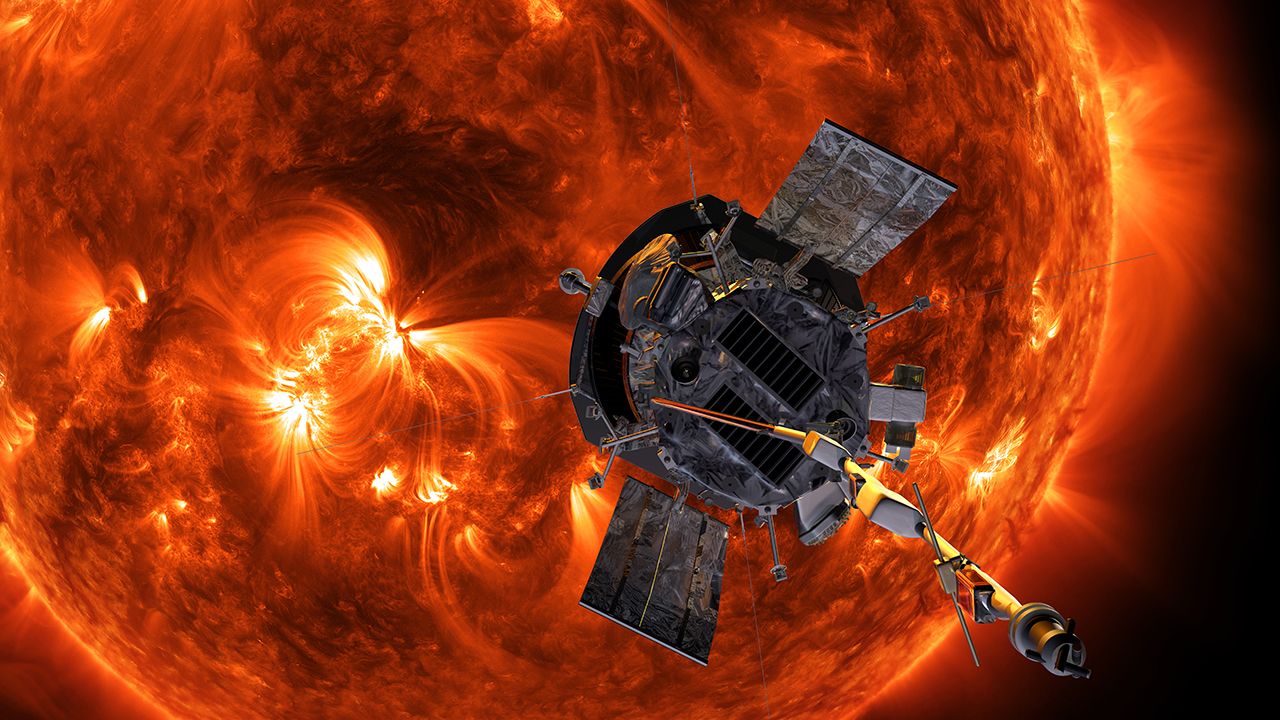#ParkerSolarProbe
Parker Solar Probe is alive and well after skimming by the Sun at just 15 million miles from our star’s surface. This is far closer than any spacecraft has ever gone — the previous record was set by Helios B in 1976 and broken by Parker on Oct. 29 — and this maneuver has exposed the spacecraft to intense heat and solar radiation in a complex solar wind environment.
“Parker Solar Probe was designed to take care of itself and its precious payload during this close approach, with no control from us on Earth — and now we know it succeeded,” said Thomas Zurbuchen, associate administrator of NASA’s Science Mission Directorate at the agency headquarters in Washington. “Parker is the culmination of six decades of scientific progress. Now, we have realized humanity’s first close visit to our star, which will have implications not just here on Earth, but for a deeper understanding of our universe.”
Mission controllers at the Johns Hopkins University Applied Physics Lab received the status beacon from the spacecraft at 4:46 p.m. EST on Nov. 7, 2018. The beacon indicates status “A” — the best of all four possible status signals, meaning that Parker Solar Probe is operating well with all instruments running and collecting science data and, if there were any minor issues, they were resolved autonomously by the spacecraft.
